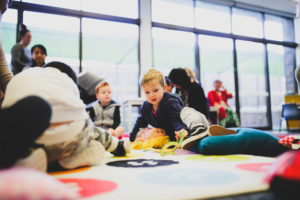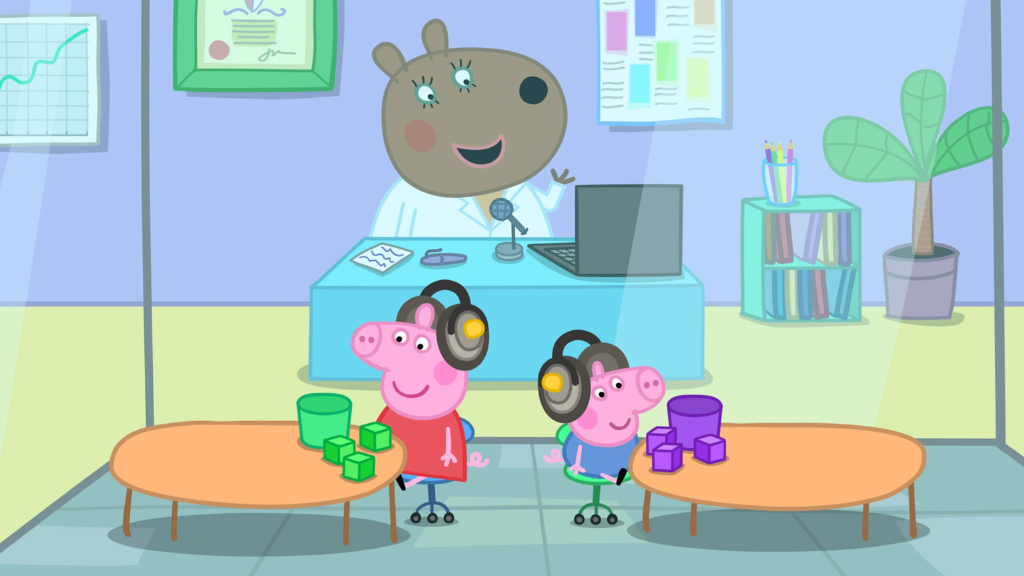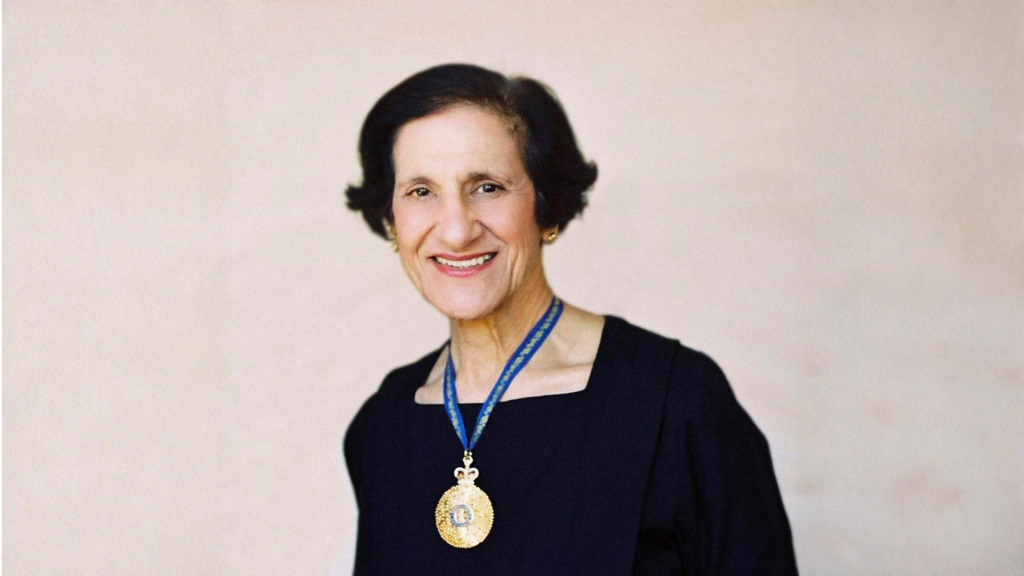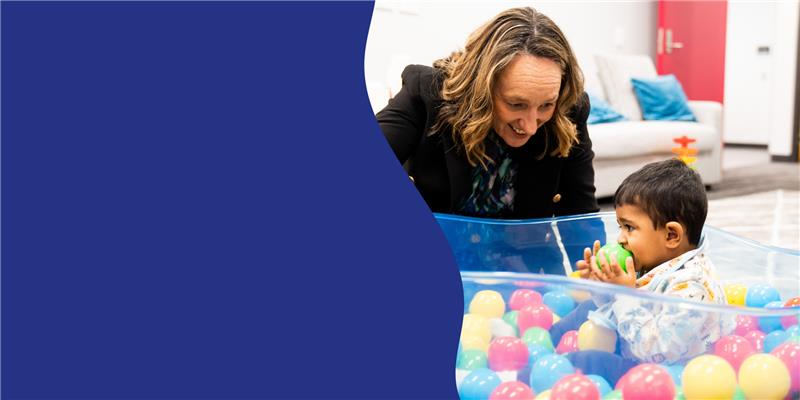The presence of a hearing loss can have an impact on the typical developmental pathway for a child learning how to communicate. For many families, pursuing a pathway to develop listening and spoken communication skills is one that derives from a goal for their child to integrate with a hearing world using these skills to learn and communicate with others.
For many children with hearing loss, it is possible for them to achieve age-appropriate listening and spoken language skills by the time they enter into mainstream schooling. This result often relies greatly on early intervention support that includes timely management of hearing, consistent use of hearing technology and specialised support for developing listening and spoken language skills.
Why do we need to monitor a child’s hearing over time?
Although achieving age-appropriate listening and spoken communication skills is possible for a child with hearing loss, due to the nature of hearing loss there are many aspects of development that may be impacted. As learning to listen and speak relies on hearing, it is critical that hearing status is managed across time to ensure the most appropriate management for the degree and type of hearing loss.
For example, using the most appropriate hearing technology for your child’s hearing loss. If there are changes in hearing, there might also be changes in the recommended hearing technology to address the needs of the changed hearing status. The Shepherd Centre has a team of Paediatric Audiologists and Ear, Nose and Throat (ENT) Surgeons to help with the close monitoring of hearing for children with hearing loss.
How do noisy environments factor into what a child hears?
As children learn in a number of different environments, including at home, schools, other educational facilities, and even out and about in the local community, there are factors that can impact upon the ability for sound to be heard by the child clearly. These include factors such as background noise, for example, other children playing or talking around them, music or the television, and how far away the speaker is from the child who is listening.
When a child has a hearing loss, even when they are using the most appropriate hearing technology for their hearing needs, factors within their everyday environments can make it more difficult for them to hear when someone is speaking to them. For a child learning to develop their spoken language skills, this poses a risk to them hearing much of the spoken information around them, and when they miss information, they cannot learn from it.
When children are learning new speech sounds, vocabulary and ways to use language, it is important that they are able to hear all of the content clearly, and have the opportunity to hear it multiple times in meaningful contexts.
When there is background noise present, it can be challenging for children to decipher or even hear all of the speech sounds and spoken information, and this limits their ability to learn from it and use it well in their own spoken language.
Even if children are able to hear part of the spoken message, this will not help them to create a full representation of what has been said to them, and as such, delays in speech and language skills may result.
With so many children learning online, we’ve developed tips to help you ensure your child can hear well online.
Should hearing devices always be worn?
For the reasons stated above, it is also important for children to consistently use the most appropriate hearing technology for their hearing needs, and ensure it is always in good working order (e.g. ensuring batteries are charged). If they use hearing technology in good working order for only part of the day, they are missing out on listening to part of the spoken information around them – and when a child is developing, all spoken information is important for them to have access to, just in the way that it is for a child with typically hearing.
What are the effects on child development?
Through our work with children over the years, at The Shepherd Centre we are aware of how a hearing impairment affects child development, both in communication and social skills, so our approach is to always address the whole child’s needs.
For a child with a hearing loss, having strong listening skills can help to lay important foundations for speech and language development, and extends further to social communication, Theory of Mind skills, Executive Function, and later literacy development.
When factors such as distance and the presence of background noise make it more difficult for a child to hear a spoken message, this can also have an impact on their ability to stay connected with the happenings occurring around them when in an environment with more than one speaker, or when interacting with peers in social settings.
Overhearing conversations occurring around them can help to provide information about the way others interact with each other, clues as to what someone else might be thinking or experiencing based on the conversation and their body language without being an active participant in the interaction. This overhearing and observation of others is an important aspect of social skill development and may also contribute to the development of Theory of Mind skills.
For a child with a hearing loss, missing this type of information or not being cued into these interactions due to not hearing the spoken information can mean that they miss out on this type of development. Good communication extends beyond clear speech and language skills, and for many children with hearing loss, focussed support for social skill development can lead to better outcomes.
How can The Shepherd Centre help?
The Shepherd Centre has a team of Speech Pathologists (Listening and Spoken Language Specialists) and Child and Family Counsellors that provide individual and group intervention to support the development of social skills and pragmatic communication.
Literacy skills are important for life long success, and the development of literacy skills is impacted by listening, speech and robust oral language skills. For a child with a hearing loss, it will be important for strong listening, speech and language skills to be developed in order for them to have the best opportunity to develop strong reading and writing skills.
Find out more about us here.
Written by Ingrid Steyns, Principal Manager Listening and Spoken Language Specialist, Programs











